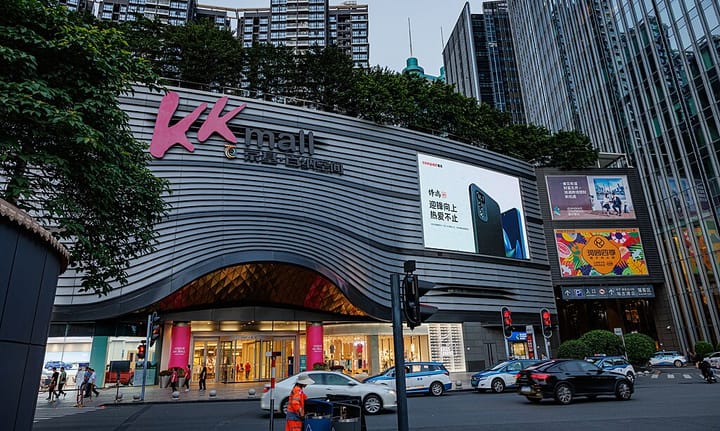SMIC gives executive 450% salary increase as China fights for semiconductor dominance

A few minutes every morning is all you need.
Stay up to date on the world's Headlines and Human Stories. It's fun, it's factual, it's fluff-free.
In 2020, SMIC’s co-chief executive Liang Mong Song’s salary reached US$1.53 million, which was up by 450% from 2019. Liang also received a flat worth US$3.4 million and 259,800 shares in the Shanghai-based contract chipmaker.
According to the Semiconductor Manufacturing International Corporation’s latest annual report, SMIC – the largest semiconductor chip manufacturer in mainland China – has significantly increased a senior Taiwanese executive’s salary and granted him property worth 22.5 million yuan (US$3.4 million).
This report suggests that the world’s second-largest economy is spending astronomical amounts of money to attract and retain top talent in its chip industry amid the current chip scarcity. The gifts were given to Liang Mong Song, a well-seasoned industry professional and the co-chief executive of SMIC, who previously worked as a senior director at Taiwan Semiconductor Manufacturing Company (TSMC).
Liang’s robust compensation comes on the heels of China’s efforts to boost its semiconductor industry. The current trade war between China and the United States, along with a tremendous loss of tech talent in China, has collectively contributed to the shortage of semiconductor chips in China.
Last year, Liang’s overall salary reached US$1.53 million, the highest amount received by any executive at SMIC. According to insiders, this amount is up by 450% from the US$341,000 Liang received in 2019.
Along with the property, Liang also acquired about 259,800 shares in SMIC. According to recent reports, SMIC’s share price traded at HK$27 in Hong Kong and 58 yuan in Shanghai. Details about Liang’s pay raise became known just a few months after he said that he had plans to leave SMIC.
Last year, SMIC temporarily halted trading on the Hong Kong Stock Exchange with the board subsequently issuing an announcement that it had noted certain media outlets reporting that Liang had proposed resigning from his position. The company also said that it had become aware of Liang’s intention to resign and would confirm this with Liang.
Liang’s resignation letter, which was leaked in December, revealed that he had led a team of about 2,000 engineers whose duties included completing the development of nodes from 28-nanometre to 7-nm. Nodes are specific chip-manufacturing processes in which smaller designs enable the creation of advanced internal circuits for smartphones, personal computers and other applications.
Liang noted that this is a task that could take other companies over 10 years to complete. In Liang’s now leaked letter, he also emphasized that his role at SMIC was “not for a high position or fat salary," but for the company’s advancement.
Liang, who worked at TSMC from 1992 to 2009, moved to Samsung Electronics before joining SMIC. According to a 2017 report by Nikkei Asian Review, Liang was said to have assisted TSMC in developing its 28-nm and 14-nm process nodes. In 2015, TSMC won a lawsuit against Liang alleging that Liang had leaked the company’s trade secrets to Samsung.
However, the transfer of trade secrets and tech talent doesn’t just exist on a corporate level, but also a global one. In late March of this year, Taiwan said that Beijing was ramping up its efforts to boost its semiconductor industry’s self-sufficiency, going as far as stealing technology and poaching talent. These efforts have reportedly grown increasingly aggressive during the US and China’s race for global supremacy.
“Affected by the U.S.-China technology war, the development of mainland China’s semiconductor industry has been obstructed, but they are still committed to the industry’s development,” Taiwan’s Economy Minister Wang Mei-Hua said at a parliamentary meeting.
Wang explained that Taiwan’s chip workers have deep experience and speak the same language, meaning they are a “natural target for poaching China has latched onto.”
While the self-ruling island has laws to prevent this from happening, workarounds have reportedly been developed by China, which include setting up front companies on the island as well as working with Taiwanese recruiters.
Just last month, Taiwanese authorities raided the establishment of two companies for poaching local talent for a chip company on mainland China and undermining Taiwan’s semiconductor industry.
Semiconductors are important components used in many devices and the recent shortage in semiconductors globally has permeated many markets worldwide. Because many semiconductor plants shut down last year due to the pandemic, suppliers directed semiconductors away from automakers to other manufacturers, creating a tremendous scarcity after customer demand exponentially skyrocketed, causing manufacturers to panic and find creative ways to increase production.
The sudden burst in demand for semiconductor chips has worsened during the COVID-19 pandemic, causing many industries to go into a state of shortage.
Have a tip or story? Get in touch with our reporters at tips@themilsource.com




Comments ()